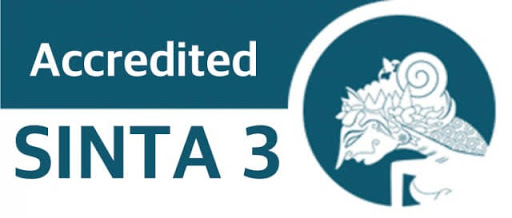Relationship among mathematics representation skills, mathematics anxiety, and problem-solving ability of 8th graders
DOI:
https://doi.org/10.12928/ijei.v2i2.4544Keywords:
mathematics anxiety, mathematics representation skills, problem-solving abilityAbstract
The purpose of this research was to determine whether there was a positive and significant relationship between mathematical representation skills and mathematical anxiety with the problem-solving abilities of eighth grade students of SMP N 2 Sedayu Bantul Yogyakarta. This research is a quantitative research involving 63 grade VIII students of SMP Negeri 2 Sedayu. The data collection method is carried out through data collection techniques in the form of questionnaires and tests. The questionnaire instrument was used to determine student learning anxiety while the test instrument was used to determine mathematical representation and problem-solving skills. Data analysis used multiple linear regression analysis method. The results showed that there was a positive and significant relationship between mathematical representation ability and mathematical anxiety with solving ability by using the F-test which resulted in F = 3.882 > 3.33 = F table with a significance level of 5%. While the correlation coefficient obtained is R = 0.3666. The regression equation is . The relative contribution of X1 is 57.88% and X2 is 42.11%. While the effective contribution of X1 is 12.24% and X2 is 8.904%.
References
Ashcraft, M. H., & Kirk, E. P. (2001). The relationships among working memory, math anxiety, and performance. Journal of experimental psychology: General, 130(2), 224.
Dowker, A., Sarkar, A., & Looi, C. Y. (2016). Mathematics anxiety: What have we learned in 60 years? Frontiers in Psychology, 7, 508.
Hoffman, B. (2010). “I think I can, but I'm afraid to try”: The role of self-efficacy beliefs and mathematics anxiety in mathematics problem-solving efficiency. Learning and individual differences, 20(3), 276-283.
Kurniawati, A. D. (2014). Pengaruh Kecemasan dan Self Efficacy Siswa terhadap Kemampuan Pemecahan Masalah Materi Segiempat Siswa Kelas Viimts Negeri Ponorogo. MATHEdunesa, 3(2), 36-41.
Risdianti, A., Kartono, K., & Masrukan, M. (2021). Mathematics Representation Skill Seen from Self-Efficacy in AIR Learning with Corrective Feedback. Unnes Journal of Mathematics Education Research, 10(A), 1-8.
Sugiyono. (2017). Metode Penelitian Kuantitatif, Kualitatif, dan R&D. Bandung: Alfabeta.
Wahyuddin, M. (2016). Pengaruh Metakognisi, Motivasi Belajar, dan Kreativitas Belajar Terhadap Kemampuan Pemecahan Masalah Siswa Kelas VIII SMP Negeri 2 Sabbangparu Kabupaten Wajo. Daya Matematis: Jurnal Inovasi Pendidikan Matematika, 4(1), 72-82.

Downloads
Published
Issue
Section
License
Copyright (c) 2022 Dedy Krisnanto, Afit Istiandaru

This work is licensed under a Creative Commons Attribution-ShareAlike 4.0 International License.
Authors who publish with this journal agree to the following terms:
- Authors retain copyright with the work simultaneously licensed under a Creative Commons Attribution License that allows others to share the work with an acknowledgement of the work's authorship and initial publication in this journal.
- Authors are able to enter into separate, additional contractual arrangements for the non-exclusive distribution of the journal's published version of the work (e.g., post it to an institutional repository or publish it in a book), with an acknowledgement of its initial publication in this journal.
- Authors are permitted and encouraged to post their work online (e.g., in institutional repositories or on their website) prior to and during the submission process, as it can lead to productive exchanges, as well as earlier and greater citation of published work (See The Effect of Open Access).




